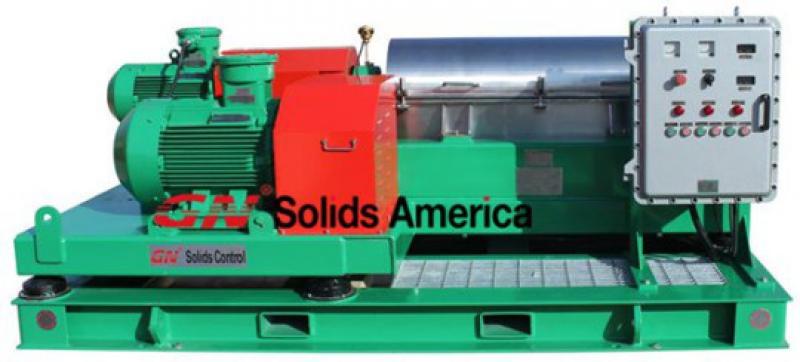The working principle of decanter
centrifuge is by different centrifugal force comes from the different
size of material separated by centrifugal forces generated by high speed
rotation. There are 2 phase centrifuges and 3 phase centrifuges. Depending on
the industries, there are centrifuges for food industry, for oil and gas
industry and for cement industry and etc.
In field of oil and gas, the centrifuge
decanters are divided into several different but related fields, including oil
and gas solids control, drilling cuttings waste management
and zero discharge dewatering unit. Among all sizes of oil and gas centrifuge
decanters, there most popular and practical and economic size is 14 inch bowl
diameter and 51 inch long decanter centrifuge, with a high rotating speed up to
3200RMP.
GNLW363 decanter centrifuge now is in its 3rd
generation, the new product has combined a lot of new designs and the feedback
suggestions from the end user all over the world. In case of VFD controlled
models, it could be used at a middle speed as a solids control centrifuge for
recover the barites and at a high speed as a waste management decanter
centrifuge and dewatering centrifuge when treating out the fine solids. Even in
case of fixed speed, such applications could be met easily by using the back up
pulley and belt at 2 extra speeds, optional at 1800RPM, 2200 RPM and 2700 RPM. For
both fixed speed GNLW363 and VFD control panel GNLW363, there are 2 optional
models of economic one and premium one for you to choose from, depending on
your budget and jobsite condition.
Besides the GNLW363 decanter centrifuge,
there are also other models of centrifuges manufactured by GN Solids Control,
including the big bowl single motor centrifuge GNLW452, middle speed centrifuge
especially for barite recovery in solids control system, and GNLW453 and
GNLW553 big bowl VFD controlled decanter centrifuge with a large treating
capacity, and also, GNLW223 baby centrifuge, mostly for mining and diamond drilling,
and sometimes for TBM slurry units’ further separation.
